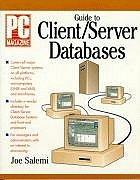Question
The following classes represent Food items at Pollock Dining Commons that students put in their food Tray during breakfast, lunch or dinner. Examples of functionality
The following classes represent Food items at Pollock Dining Commons that students put in their food Tray during breakfast, lunch or dinner. Examples of functionality are provided in the docstring. class Food: """ name -> str price_per_unit -> int/float >>> food_item_1 = Food('Donut', 1.5) >>> food_item_2 = Food('Scrambled Eggs', 2) >>> food_item_1.cost() 1.5 >>> food_item_2.cost() 2 """ def __init__(self, name, price_per_unit): self.name = name self.price_per_unit = price_per_unit def cost(self): return self.price_per_unit class Tray: """ >>> food_item_1 = Food('Donut', 1.5) >>> food_item_2 = Food('Scrambled Eggs', 2) >>> my_breakfast = Tray() >>> my_breakfast.add_to_tray(food_item_1) >>> my_breakfast.add_to_tray(food_item_2) >>> my_breakfast.add_to_tray(food_item_1) >>> my_breakfast.add_to_tray(food_item_1) >>> my_breakfast.items [, , , ] >>> my_breakfast Tray contents: Donut, Scrambled Eggs, Donut, Donut """ def __init__(self): self.items = [] def add_to_tray(self, food_item): self.items.append(food_item) def __str__(self): str_repr = [] for food_item in self.items: str_repr.append(food_item.name) return 'Tray contents: ' + ', '.join(str_repr) __repr__ = __str__ You are asked to write classes that extend the Food class, so we can represent the various food categories available: Main dishes, Snack, and Drink (we will consider drinks as a special type of food). We will also have a special case for Hot Drinks as they require special cups that cost more. While for the most part, these items will behave exactly like the generic Food items, there are some unique properties. Snacks should be classified under either sweet or savory, by an additional parameter that is used to initialize them. Main dishes should be initialized with an extra parameter is_seasonal which will be either True or False. If its a seasonal dish, the cost should be equal to 0.85*price_per_unit. Hot drinks should have a class variable HOT_CUP_PRICE and have the cost equal to the price of the drink plus this price. Finally, implement a Plate class. A Plate is separate from a Tray, and stores at most one food and one drink item. If you try to add more, you will get an error message. Some sample functionality is provided below: >>> new_plate = Plate() >>> soda = Drink("Pepsi", 2) >>> snack = Snack("Pretzel", 3) >>> new_plate.add_item(soda) Added successfully. >>> new_plate.add_item(snack) Added successfully. >>> new_plate.add_item(soda) This plate already has a drink. Assume that all these classes are written such that they appropriately use the design principles discussed in Module 3.2 (inheritance and polymorphism). Remember that inheritance allows the subclass to use the same blueprint of the parent class just by including the parent class name in the subclass definition. Do not repeat unnecessary code that is already available. Assume that the initialization method of a Food item was accidentally modified in a way that causes an error whenever it is run. Instances of which classes could successfully be created despite this mistake? Main Food Plate HotDrink Drink Snack
Step by Step Solution
There are 3 Steps involved in it
Step: 1

Get Instant Access to Expert-Tailored Solutions
See step-by-step solutions with expert insights and AI powered tools for academic success
Step: 2

Step: 3

Ace Your Homework with AI
Get the answers you need in no time with our AI-driven, step-by-step assistance
Get Started


